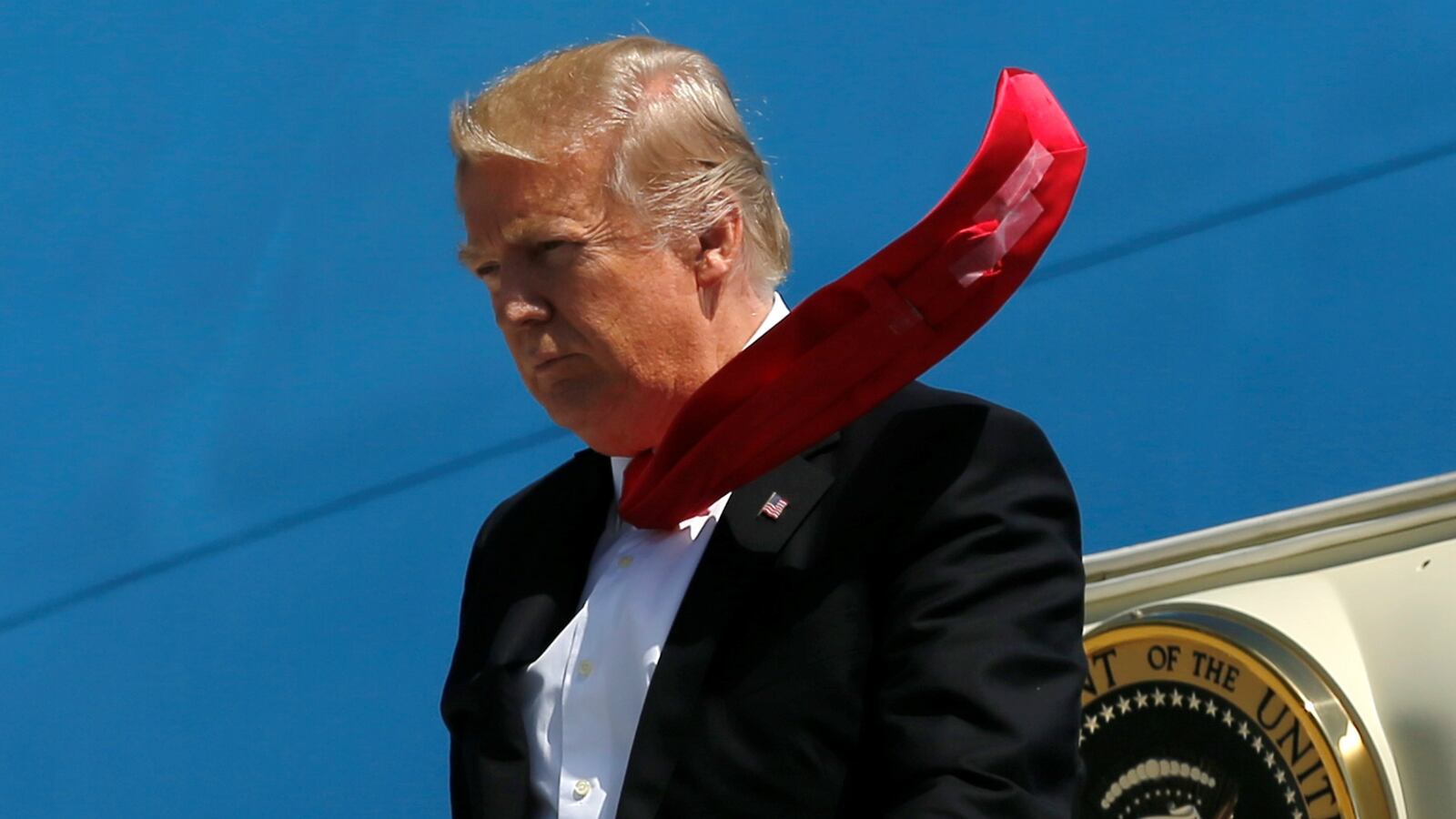The chatter today is that hawks in the Kremlin understand the sensational allegations against former National Security Adviser Michael Flynn and Attorney General Jeff Sessions as Kremlin dupes to be part of a potent Congressional blocking of President Donald Trump’s steps toward détente with President Vladimir Putin.
To underline the case, gossip about Kremlin voices points to 1969-74, when President Richard Nixon’s complex steps toward détente with then Soviet Union Premier Leonid Brezhnev were derailed by the grinding Watergate scandal that saw Congress drive Nixon from office.
Recall that Nixon and his National Security Adviser Henry Kissinger moved early in the first term, 1969, to find peace-making initiatives that the USSR and US could agree to in a display of what could be understood as a thawing of the Cold War -- dubbed détente. This was bold and risky diplomacy given the disastrous Vietnam war and the menacing worldwide arms race.
There was the ground breaking SALT 1 negotiation, 1969-72, that aimed to limit the number of strategic ballistic missile launchers. Also there was the simultaneous negotiation for the Anti-Ballistic Missile Treaty that limited the number of sites and weapons each side could deploy.
There were early steps toward the success of the Biological and Toxin Weapons Convention that obliged both superpowers to eliminate classes of wickedness, such as aerosolized biological weapons of anthrax.
These agreements, which appear commonsensical today, were loudly controversial at the time because, after twenty-five years of apocalyptic standoff, there was negligible trust of the Soviets.
Savvy, respected Washington Senator Henry Jackson spoke sharply against the May 26, 1972 signing of SALT 1 alongside the ABM Treaty. “The present agreements are likely to lead to an accelerated arms race with great uncertainties, profound instabilities and considerable costs.”
Jackson, a presidential contender, added that the numerical weapon advantage granted the Soviets “must be a principal focus of an intensive Congressional inquiry.”
The Nixon Administration proceeded cautiously to advance détente along with the so-called Vietnamization and tentative steps toward defanging and opening up the PRC. It was an election year, and defense hawks dominated both the confident Congressional Democratic majority and the deeply anti-Communist Congressional Republicans.
Moscow regarded Nixon’s sweeping re-election in November 1972 and exuberant second inaugural speech in January 1973 as a vindication of detente.
However the Watergate scandal dogged Nixon’s relations with Congress after the summer of 1972 until open political warfare broke out with the mesmerizingly televised Senate Watergate Committee from May 1973.
By September 1973, Brezhnev was consternated by the Democratic aim to accuse Nixon of criminal conduct. The ambitious Kremlin wanted to move away from large-scale agreements with the White House and toward modest, near-term deals such as trade. It saw Watergate as a disruption.
In the Presidential Briefing on September 5, 1973, the CIA reported to Nixon about a recent Brezhnev presentation on the future of détente: “Brezhnev used the opportunity to praise President Nixon and lament Watergate. He voiced a suspicion that the opponents of
Soviet-US accommodation are trying to exploit Watergate, and said he wanted to build détente so firmly that it will not be an issue in future US politics.”
The wrenching presidential events of the next year deepened the Soviet opinion that Watergate was a revolt by Congress to sabotage détente and redouble the Cold War.
After all, the October 1973 Saturday Night Massacre at the Justice Department to block the Special Prosecutor from the Oval Office tapes happened amid the brinksmanship of the US-Soviet face-off over the Yom Kippur war. Both the White House and the Kremlin were frightened by the peril, and history says that Brezhnev called off further intervention when he saw the US move from Defcon Four to Defcon Three.
Yet nothing Brezhnev and Nixon could do to calm the Cold War could stop the Democratic-controlled Congressional machinery of the Watergate investigation. Brezhnev’s “jovial reunion” with Nixon to Moscow in late June 1974 was irrelevant once the US Supreme Court ordered the incriminating Oval Office tapes released on July 30.
Nixon was gone in ten days after Congressional Republicans abandoned him, leaving the Kremlin with the fixed verdict that the Washington Cold Warriors had successfully engineered a coup d’etat rather than accept “accommodation” with Russia.
Perhaps the inheritors of the Soviet–era Kremlin see the same formula at work today in Washington, with Congressional hawks aiming to prevent any move by the administration to reach an “accommodation” with President Vladimir Putin, and perhaps to test the Trump administration with a Constitutional crisis.
The fact that Trump did not mention Russia in his address to Congress on February 28 has raised still more questions about whether the president is either too unskilled or too vulnerable to manage détente.
The Kremlin is not waiting for better days. Moscow is moving to deepen its ties to the Eurasian superpower, Beijing, and may leave Congress to its blame-shifting self-regard as Russian leaders brace for the international crises and brinksmanship that may be part of the failure of this round of détente, just as they were during and following Watergate.






